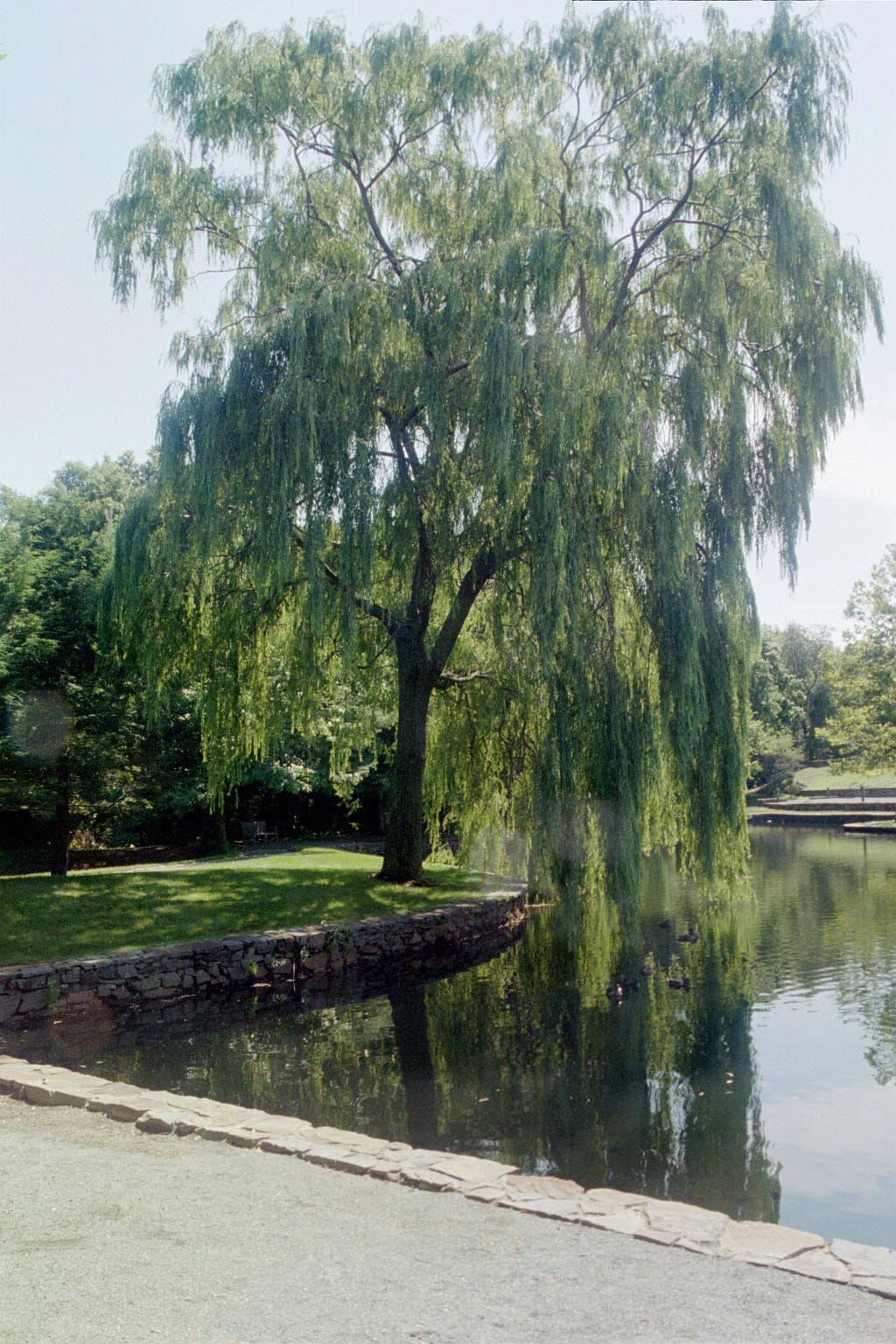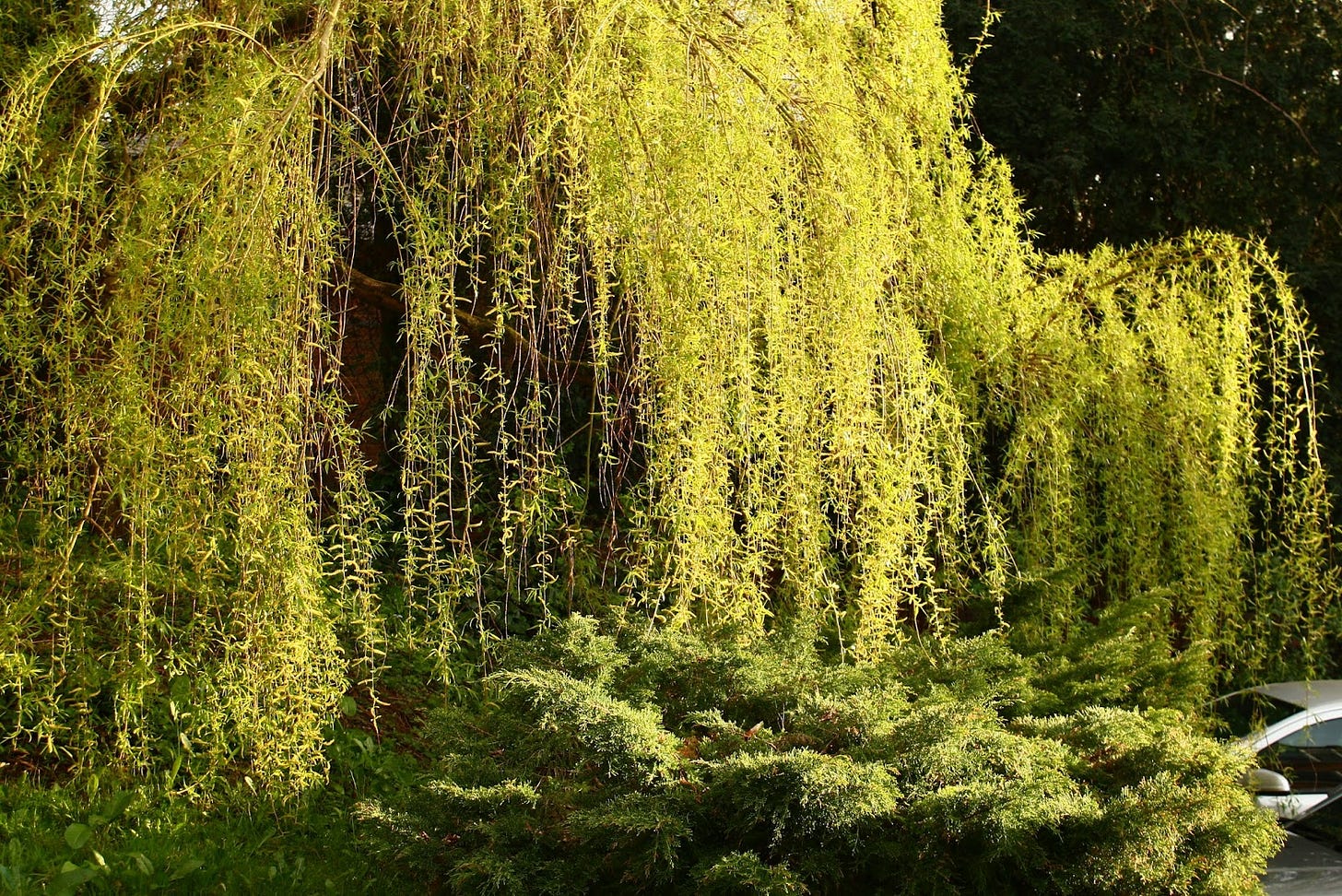One of the many consequences of the restrictive philosophical materialism that reigns supreme is an inability to recognise symbols. From this perspective, natural and artificial objects don’t have any significance. They’re just stuff.
Not only is this a disastrous way to look at the world, but it also makes it impossible to appreciate literature and music. It’s becoming increasingly clear that young students don’t have the background knowledge that almost all writers took for granted until about sixty or seventy years ago. One of my students recently asked me a question that left me temporarily speechless – not because I didn’t have an answer, but because I had too many.
His question was: are trees symbolic?
Obviously, they are, but you have to be careful because the symbolism of trees is highly specific. Different types of trees symbolise different things, and their significance might vary depending on the time and place because there are no symbols without human meaning and intentionality. (This is why comparing the mind to a computer is so awfully wrong.)

Let’s start with the willow. It’s one of the four trees associated with the Jewish holiday Sukkot, and is cited in Leviticus 23:40:
And ye shall take you on the first day the boughs of goodly trees, branches of palm trees, and the boughs of thick trees, and willows of the brook; and ye shall rejoice before the Lord your God seven days. (KJV)
But the willow is much more often associated with mourning. In Book 10 of the Odyssey, Circe tells Odysseus about the groves of Persephone at the entrance to Hades, with μακραί τ᾽ αἴγειροι καὶ ἰτέαι ὠλεσίκαρποι, tall poplars and fruit-losing willows – apparently because the willow drops its fruits before they’re ripe. Thus, willows came to represent the forlorn maiden jilted by her lover who, more often than not, causes her death. This is mainly what they signify in Shakespeare.
In Hamlet, the description of poor Ophelia’s drowning starts with a willow:
There is a willow grows aslant a brook,
That shows his hoar leaves in the glassy stream;
There with fantastic garlands did she come
Of crow-flowers, nettles, daisies, and long purples
That liberal shepherds give a grosser name,
But our cold maids do dead men's fingers call them:
There, on the pendent boughs her coronet weeds
Clambering to hang, an envious sliver broke;
When down her weedy trophies and herself
Fell in the weeping brook.
In The Merchant of Venice, under the moonlight Lorenzo (in what seems like an incredibly ill-chosen comparison) tells his young lover Jessica that:
In such a night
Stood Dido with a willow in her hand
Upon the wild sea banks and waft her love
To come again to Carthage.
In the gender-bending play Twelfth Night, Viola, disguised as the page boy Cesario, takes a love message from her boss Orsino to give to Olivia. During this courtship-by-proxy, Cesario abandons the prepared speeches and tells Olivia what “he” would do if “he” were in love with her:
Make me a willow cabin at your gate,
And call upon my soul within the house;
Write loyal cantons of contemned love
And sing them loud even in the dead of night;
Halloo your name to the reverberate hills
And make the babbling gossip of the air
Cry out “Olivia!” O, you should not rest
Between the elements of air and earth,
But you should pity me!
The reference to the willow – usually associated with females – might be a hint that Cesario is not quite who “he” appears to be.

But the most famous willow in Shakespeare is in Othello. It’s part of a song (not written by Shakespeare) sung by Desdemona: she realises that her relationship with her husband Othello is deteriorating as he falls into a jealous rage. She sings a song she learned from her mother’s maid, Barbary, whose lover went mad “and did forsake her.”
To compound the sadness, the first line of the song mentions another tree associated with unhappy love, the sycamore:
The poor soul sat sighing by a sycamore tree,
Sing all a green willow:
Her hand on her bosom, her head on her knee,
Sing willow, willow, willow:
The fresh streams ran by her, and murmur'd her moans;
Sing willow, willow, willow;
Her salt tears fell from her, and soften'd the stones;Sing willow, willow, willow;
Prithee, hie thee; he'll come anon:–Sing all a green willow must be my garland.
A manuscript from around the same time as Othello has a piece for treble voice and lute accompaniment with words very similar to Desdemona’s song:
Giuseppe Verdi and Arrigo Boito kept a version of a willow song in their opera Otello. (Thank God we have this brilliant opera. It was written after Verdi’s “retirement.”) Listen to the plangent two-note melody as she cries out “Salce! Salce! Salce!” (Willow! Willow! Willow!)
The willow would continue to represent unfulfilled love in opera. In Gilbert and Sullivan’s Mikado, Ko-Ko, the “Lord High Executioner,” asks Katisha to marry him. She initially rejects him, but is softened by his story about a bird who dies of heartbreak. The song is called “On A Tree By A River,” but it’s obvious what sort of tree it is:
'twas blighted affection that made him exclaim
"Oh, willow, titwillow, titwillow!"
And if you remain callous and obdurate, I
Shall perish as he did, and you will know why…
The willow even made it into one of the best sitcoms from the 1990s, Frasier. In a scene from season 10, Martin Crane returns to the flat, feeling proud and relieved after he’s confirmed that he is indeed the biological father of Frasier and Niles. He closes the door and smiles to himself, “my boys.” He sees the boys gathered around the piano, but what are they singing?




sorry, couldn't resist (Joyce Kilmer's 'Trees'):
I think that I shall never see
A poem lovely as a tree.
A tree whose hungry mouth is prest
Against the earth’s sweet flowing breast;
A tree that looks at God all day,
And lifts her leafy arms to pray;
A tree that may in Summer wear
A nest of robins in her hair;
Upon whose bosom snow has lain;
Who intimately lives with rain.
Poems are made by fools like me,
But only God can make a tree.